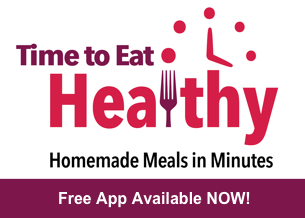To Buy Organic or Not?
How to shop for fresh produce without blowing your food budget.
Guest Post By: Laura Chalela Hoover, RDN
The reasons to buy organic fruit and vegetables are many. Earlier this month, Organic Authority highlighted five reasons that buying organic is good for the body and the planet, including higher lower greenhouse gas emissions and happier bees (pesticides are harmful to our friendly pollinators).
There are also some pretty significant health benefits. In 2012, the American Academy of Pediatrics published a report stating “organic diets have been convincingly demonstrated to expose consumers to fewer pesticides associated with human disease.”
Those are pretty strong words. And given that we know that kids are more susceptible to pesticide residue toxicity, it’s pretty clear to me that buying organic is the way to go.
But the organic varieties of my family’s favorite fruits and vegetables aren’t always available, even when I shop at my local farmer’s market, Whole Foods and Trader Joe’s. And sometimes the organic variety is available, but it has an outrageous price tag, or quite frankly, just doesn’t look very appealing.
Rather than suffer massive amounts of mom guilt, as I’ve been known to do, here are a few helpful strategies that I’ve adopted.
- Rely on the Environmental Working Group’s Dirty Dozen™ and Clean Fifteen™ lists. These lists rank conventionally-raised fruits and vegetables based on the amount of pesticide residues they contain. If a fruit or vegetable is on the Dirty Dozen list, I go for the organic version. And if I can’t remember if something is on the list or not, if it has a thin skin, it’s probably higher in pesticide residues so I choose organic.
- Shop the frozen aisle. I live in the Midwest where our organic produce options are less plentiful and less fresh than in other parts of the country. But I can always find organic strawberries, peaches, spinach, bell peppers and nectarines – all foods on the Dirty Dozen list – in the freezer section.
- Don’t sweat it. Sometimes it’s tempting to tell myself that if I can’t buy it organic, I shouldn’t buy it at all. But the bottom line is it’s more important that kids eat fruits and veggies, even if conventionally grown, than to not eat them at all.
I’ll leave you with this quote from an American Academy of Pediatrics press release that sums it up perfectly.
“What’s most important is that children eat a healthy diet rich in fruits, vegetables, whole grains, and low-fat or fat-free dairy products, whether those are conventional or organic foods. This type of diet has proven health benefits,” said Janet Silverstein, MD, FAAP, a member of the AAP Committee on Nutrition and one of the lead authors of the report.
About Laura
Laura Chalela Hoover is a registered dietitian nutritionist who lives in Chicago with her husband and two young children. She is the founder and editor-in-chief of Smart Eating for Kids, a site that shares yummy nutrition ideas, kid-friendly recipes and smart strategies to manage picky palates and other obstacles






posted by A. Mac on July 14, 2014
Thanks for the post Laura. Glad I found it. Thank you. Might I suggest other areas that we need to look into for trying to keep the environments we live in clean of chemicals and toxins. Keep in mind it’s just as important what you use in your environment as what you put in your body. Let’s work together to make both our bodies and environment as chemical and toxin free as possible and stem the tide of out of control chemicals and toxins. When you have second, I’d love to hear your thoughts on Freshana Organic Solutions. You and your readers can learn more at Freshana.com